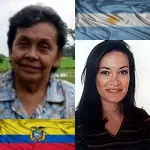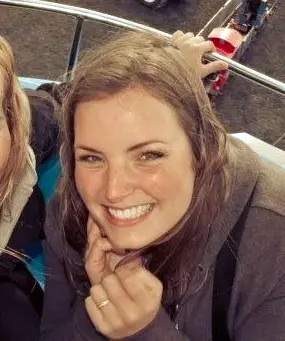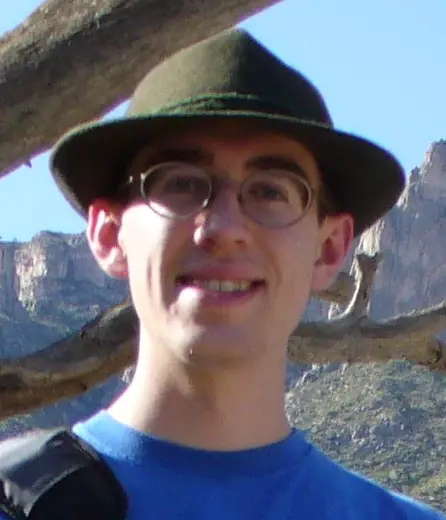Yannick Marchegay, aka kokoyaya on the forum, is the webmaster of the Spanish version of Freelang. He is also the author of two Spanish dictionaries, and he is a Freelang translator.
Interview by Beaumont
Published September 9, 2005 (first published January 6, 2004 on our French site)
Many thanks to didine for the translation
Yannick, how did you find out about Freelang and how did you end up contributing to the website?
Well, I don’t exactly remember. My father probably found the address of the translation service. I registered immediately and then found out about the forum. I became very active on it quite soon (it all happened within a week).
You’re a translator and graduated in 2003. What education and training do you have?
After I passed my matriculation exam, I studied applied languages (English and Spanish). I discovered that I had the opportunity to study abroad during my 3rd year at university and went to Huesca (Aragon, Spain). A year later, I went to Bradford (West-Yorkshire, UK) for my 4th year. I was planning to spend a term at the University of Geneva afterwards, since its department of translation and interpretation is very reputable. I took the entrance exam to the postgraduate translation programme of the University of Toulouse all the same to study translation (I’d wanted to study there since I was 16). I passed the exam and decided not to ask for it by leaving for Geneva. So I stayed in Toulouse and studied: I took courses from October to March and then did an internship in a company from April to August. So, since I graduated, I’ve been unemployed with a degree in translation. I’m still looking for a job in translation but also in communication or commerce (or why not computers).
Is it easy to find a job when you’re a young translator? What are the main difficulties?
To make things plain, you have to know there are two main types of translators: those who work in companies and those who work at home as freelancers. There is quite a lot of work out there for competent freelancers, but experience is required of them. And to have experience, there’s no secret: you have to work in a company (but few hire). So it is a vicious circle (but I think it is pretty much the same for all jobs): you need experience but no one wants to give any.
What advice would you give to those who want to become translators? What qualities does this job require?
It’s a job that requires a certain number of qualities: open-mindedness (it’s very important to be curious) and the ability to take a new look at oneself (that’s what was most problematic for me). The advice I could give to those who want to become translators is that they should try and learn one or more rare language(s) and specialise (there are many non-specialised English-French and Spanish-French translators: you need to be a cut above the rest).
People often think that translators work on their own, retreated in libraries, surrounded with dictionaries. Is it what it’s like?
It goes without saying that translators who are employed by companies don’t work in such conditions, but it’s true that it can be like this for freelancers. That’s why associations like the SFT, the French Translators’ Association, are important. They organise meetings (at least it’s the case in my delegation, in southwestern France) on topics that preoccupy translators (and also to make translators who often work alone meet). The forums and groups play a very important role.
What languages do you speak and how did you learn them?
I learnt English, Spanish and ancient Greek at school, as well as Occitan (I studied it for two years in senior high school, but I’ve forgotten almost everything because I didn’t practice). One of my biggest regrets is that I didn’t take up a foreign language at university.
Do you still learn new languages?
I’m taking up Breton (it goes quite well as I have a great teacher) and I’m planning to take up Romanian and modern Greek. Further, a Scandinavian language wouldn’t leave me cold… (or maybe Croatian, I still don’t know).
Is learning a French regional language an asset?
From a linguistic point of view, every language is as asset: it’s a lot easier to learn a language when you speak other languages. Of course, I also have other motivations: I’m mad about Brittany and its culture. It goes without saying that learning Breton is an asset to understand this region even better. However, from a purely economic point of view, I doubt speaking a regional language is of interest for translators.
I know you’re a musician. What instruments do you play?
Now that’s a vast question… After junior high school, I missed the recorder, so I “stole” a flute from one of my cousins. She couldn’t play it very well and I soon outflanked her. Encouraged by this small triumph, I borrowed the instrument from her for a while. Later on I had the opportunity to buy a guitar and then I took up alto saxophone. During my stay in Huesca, Spain, I learnt how to build and play the Aragon bagpipes and the dulzaina (a traditional oboe, a kind of Aragon bombardon with a more velvety sound), and I bought Galician bagpipes (this, unfortunately, I don’t take out from their case very often). Still in Spain, I bought a very good second-hand clarinet, which I have had restored, as well as two violins (a full size and a three-quarters size). I don’t play the violin very often either, but I play the clarinet increasingly often.
Since I came back to Toulouse – to the great displeasure of my parents – I’ve started playing the bombardon in Breizh en Oc, a cultural Breton association in Toulouse where people dance, play traditional music and sing traditional songs. I’m planning to buy an Irish flute, it sounds wonderful (or, depending on who I play with, a bass clarinet).
Do you have other hobbies?
The problem is that I have (too) many of them! I’ve been interested in astronomy since I stayed in Spain. I also like building model aircrafts, but this I had to put aside a bit as I don’t have enough time. I’ve been interested in Linux for a short time (and computers in general), cooking, calligraphy. I also take part in the Linux translation project and I’m creating an interface (a website and a forum) to reunite the former students of my translation program. My internal clock is very conciliatory, which helps a lot…
Let’s take stock of your activities on Freelang. You take part in the translation service, how would you qualify this experience?
It’s very rewarding. In fact, I haven’t been asked to do that many translations, but in most cases, everything went fine. However, when it comes to personal reward, I really prefer the forum because people give their opinions – and thanks to that we achieve good results and get better at translation.
You’ve also written two Spanish dictionaries: one for music and one for astronomy. Do you have other projects?
I would really like to make a Spanish computer science dictionary and an English music dictionary. Other ideas will probably come up afterwards…
Can you tell us about the Spanish version of Freelang in a few words?
For the moment, it is just parts of the French version translated into Spanish: dictionaries of course, but also the font collection. The Freelang forum also has a Spanish section and there are more and more Spanish speakers on the chat.
Do many people visit the Spanish website?
The daily number of visitors reached 200 in a few weeks. Right now, the record was 2000 mi-October and I plan to double this number before next June.
What are your plans for this website?
I would like to complete the link center (somehow empty) and a magazine section. Maybe we’ll launch a translation service in Spanish some day, but it’s going to take some time…
You’re also a moderator on the forum and on the chat. What do they bring to the website, and what do you get out of them personally?
The forum and the chat are, in my opinion, the driving elements of Freelang. The website evolved without them, but the forum and the chat bring us new members. Visitors who are a bit discouraged by the fact that they didn’t find the information they need (if they have a problem installing a dictionary, if they’re looking for a translation…) come to the chatroom. We help them as much as we can and direct them to the right tool or person if we can’t help them.
Where does ‘kokoyaya’, the nickname you use on the forum and on the chat, come from?
It’s very easy: I used to play in a Breton music trio called Korrigan (a goblin from the magical forest of Brocéliande). When you reduplicate the first syllable, you get ‘koko’. My first name is Yannick, which gave ‘yaya’. The koko + yaya equation is then easy to solve…
Which of your activities in Freelang (author, translator, moderator, webmaster…!) do you prefer and why?
I’m not sure I prefer any one of them in particular, they just make up a whole. Making dictionaries is very formative. Being a volunteer translator does not beat it to myself as the service is designed for private individuals who would have never brought in a profesional anyway. Being a moderator on the chat and on the forum forces me to constantly take a new look at myself and has enabled me to meet interesting people, from a personal and profesional point of view. Being a webmaster has made me work again on HTML encoding (which I was forgetting), as well as on my Spanish.
Would you like to pass on a message to the Freelang users?
Learn languages, help the others when you can, learn from the others the rest of the time and you’ll be a good ‘Freelanger’.
What can we wish you for the year 2005?
Maybe to get a job first of all, then find the time to go to my beloved Brittany, and for the rest, may everything continue as it began.
Thanks Yannick 🙂
![]() Feel free to share your comments on this interview.
Feel free to share your comments on this interview.



